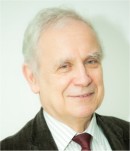
Plenary Lecture
Changes in Domestic Hot Water Heating Load and its Impact on District Heating Network Design

Professor Teet-Andrus Koiv
Department of Environmental Engineering
Tallinn University of Technology
Estonia
Email: teet.koiv@ttu.ee
Abstract: The presentation gives an overview of the studies in the field of domestic hot water (DHW). In Eastern Europe instantaneous heaters are widely used for DHW heating. Over the past 20-25 years there has been a significant change in DHW consumption. The changes have been so great that new dimensioning methodology is needed. This necessity was also stated by other investigators. The developed methodology allows to reduce the capacity of instantaneous DHW heaters in residential and public buildings by up to two times. In Eastern European district heating (DH) systems, DHW heating in substations with instant water heaters is fairly common. In this study the calculation method takes into account this type of DHW production, that is DHW production in instant water heaters. The optimal calculation methodology of DH network dimensioning requires the use of the probability of domestic hot water consumption that is close to reality. Long-term studies conducted in Estonian conditions have shown that the probabilistic hot water consumption of apartment buildings can be determined depending on the number of apartments or bathrooms. According to the new calculation methodology in tree-shaped DH networks, the flow rates are lower and thus it is possible to choose pipes with smaller diameters compared to the old calculation methodology. Studies show that the thermal network cost is reduced by approximately 12% using the new calculation method. The reduced cost of a new boiler plant with the new calculation method is about 45% lower. By the new calculation method, the reduction of the heat energy losses of the DH network is nearly 2%. The comparison of the new and old dimensioning methods shows that the new method reduces the pumping cost by about 43%.
Brief Biography of the Speaker: T.-A.Koiv received his M.Sc. in Thermal Engineering from the Tallinn University of Technology and the PhD at the Institute of Civil Engineering of St Petersburg in Heating, Heat Supply, Ventilation and Air Conditioning in 1978. Since 2003 he has been Full Professor of the Chair of Heating and Ventilation at the Tallinn University of Technology, Estonia. He has read several courses in the field of Thermal Engineering, Heat Supply, Heating, Ventilation and Air Conditioning, Renovation of HVAC systems at the Tallinn University of Technology. At present he supervises 5 PhD students. Prof T.-A.Koiv has 18 inventions and patents in the field of Heating and Heat Supply. He is an active researcher in the field of energy efficiency, indoor climate and building service systems. He is the author of the 10 books and textbooks. T.-A. Koiv has published more than 150 papers in books, journals and conference proceedings. Prof. Koiv has received REHVA Professional Award for energy efficiency of buildings (2013), T.-A.Koiv is REHVA Fellow (2014). He is vice dean (in the field of science) of the Civil Engineering Faculty of the Tallinn University of Technology and head of several projects (Development of efficient technologies for air change and ventilation necessary for the increase of energy efficiency of buildings, Decreasing the consumption of heat energy by awareness rising and performance of consumers based on measurements of individual heating costs, New international master program “Energy Efficiency of Buildings”, Energy Auditing and Certification of Buildings, Doctoral School of Civil and Environmental Engineering). He is a member of CBI and WSSET. He has been reviewer of Journals and member of Scientific Committee of Conferences. He has had 3 Plenary Lectures on WSEAS conferences. He is a peer reviewed doctoral theses. T.-A.Koiv is Chairman of the thesis defense board of Energy Efficiency of Buildings, Member of Board of Open University of Tallinn University of Technology. His research and activity has made significant impact to national scientific and engineering communities.